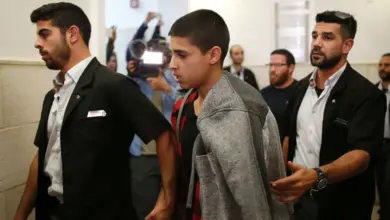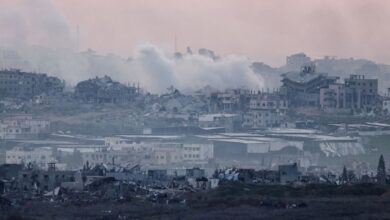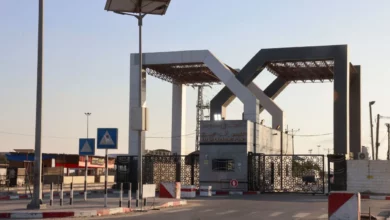Rafah–Smugglers along the border of Egypt and the Gaza Strip will continue moving goods through tunnels despite the recent construction of an underground wall.
"Let the Americans and the Israelis pay for the wall," Ismail*, a smuggler, told Al-Masry Al-Youm. "The tunnels are minimum 20 meters underground. We can make it 40 meters."
Several hundred tunnels exist along the Rafah border to provide the besieged Gaza Strip with food, medicine, household goods, live cattle, building materials, and small firearms. The tunnels are a cause of concern for Israel and the US government because they allegedly provide militants with rockets.
Since Israel’s attack on Gaza at the turn of 2009, Palestinians in the strip rely on international aid and the tunnels to survive. An Israeli-Egyptian embargo has effectively prevented Palestinians from rebuilding their homes and resuming business, as most structures have not been rebuilt a year after the attack. Last week a UK court issued an arrest warrant for former Foreign Minister Tzipi Livni for war crimes. In the end of December, international activists are planning to travel to Gaza to "call worldwide attention to the ongoing humanitarian crisis" and open the borders to Gaza.
In an interview with Al Jazeera last week, an assistant to the governor of North Sinai said the government has acquired land along the border from farmers and uprooted trees, but did not provide specifics about the wall. Locals say construction of a wall has been underway by Egyptian and American engineers for nearly three weeks, while smugglers continue working on both sides of the border.
"With money, anything is allowed to happen," said Adel*, another smuggler. "If you need to eat you will find a way to survive."
Smuggling is a lucrative business that uses US dollars for exchange. One tunnel earns about US$10,000 per day, divided evenly between the Palestinian and Egyptian owners, according to smugglers. Owners pay about US$700 per day for electricity, transportation and maintenance. Workers earn US$100 per day, far more than they would in other jobs. A tunnel costs around US$200,000 to build, or US$100 per meter. If goods do not reach Gaza, the Egyptian owners of the tunnel are responsible for paying for them. Bribes, smugglers say, are just another expense.
"If someone from the police finds a tunnel, you are supposed to pay him five or six thousand dollars to leave the tunnel there," Adel said.
The police and smugglers, who are usually Bedouin, have tense relations, despite accusations of collusion. In late November a gunfight broke out after police arrested a Bedouin man in a dawn raid. One Bedouin man was killed and two policemen were captured in retaliation.
"Security is in a constant clash with smugglers in Rafah, arresting smugglers and uncovering numerous tunnels in incidents that only show the lies of these smugglers and law-breakers," Brigadier-General Hany Abdel Latif, an Interior Ministry spokesman, told Al-Masry Al-Youm.
Smugglers also accuse Egyptian security forces of confiscating thousands of dollars of goods and having intimate knowledge of what reaches Gaza and what does not.
"You wouldn’t hear this nonsense except from smugglers, who are essentially criminals and law-breakers; enemies of security and security men," Abdel Latif said.
The Egyptian government has not commented on the details of the wall, while press descriptions have varied. One report said it would be 18 meters under ground and 12 meters above ground. Another said it would be 30 meters deep.
According to photos and local accounts, the wall will be exclusively underground, stretching 11 kilometers from the Mediterranean Sea to Karm Abu Salem, where Israel manages the border. It appears that several teams are working on the wall and will eventually converge in the middle.
One press report also said the wall would be impenetrable, but photos show a thin metal fence zigzagging underground. One Palestinian businessman told smugglers over the phone that they would cut through it.
"It’s no danger to business," he said. "We’ll find a solution. We will cut it with a blow torch."
In the absence of an end to the siege on Gaza, Palestinians will continue to rely on the tunnels as a lifeline. Smugglers doubt the Egyptian government will ever open up official trade with Gaza, but if it did, the smugglers are certain they would not benefit from it.
"It depends on the price," Ismail said. "The tunnels make a lot of money, but if trade is official the Egyptian government will take a lot of money from us."
Additional reporting by Pakinam Amer.
*Editor’s note: Smugglers names have been changed.




